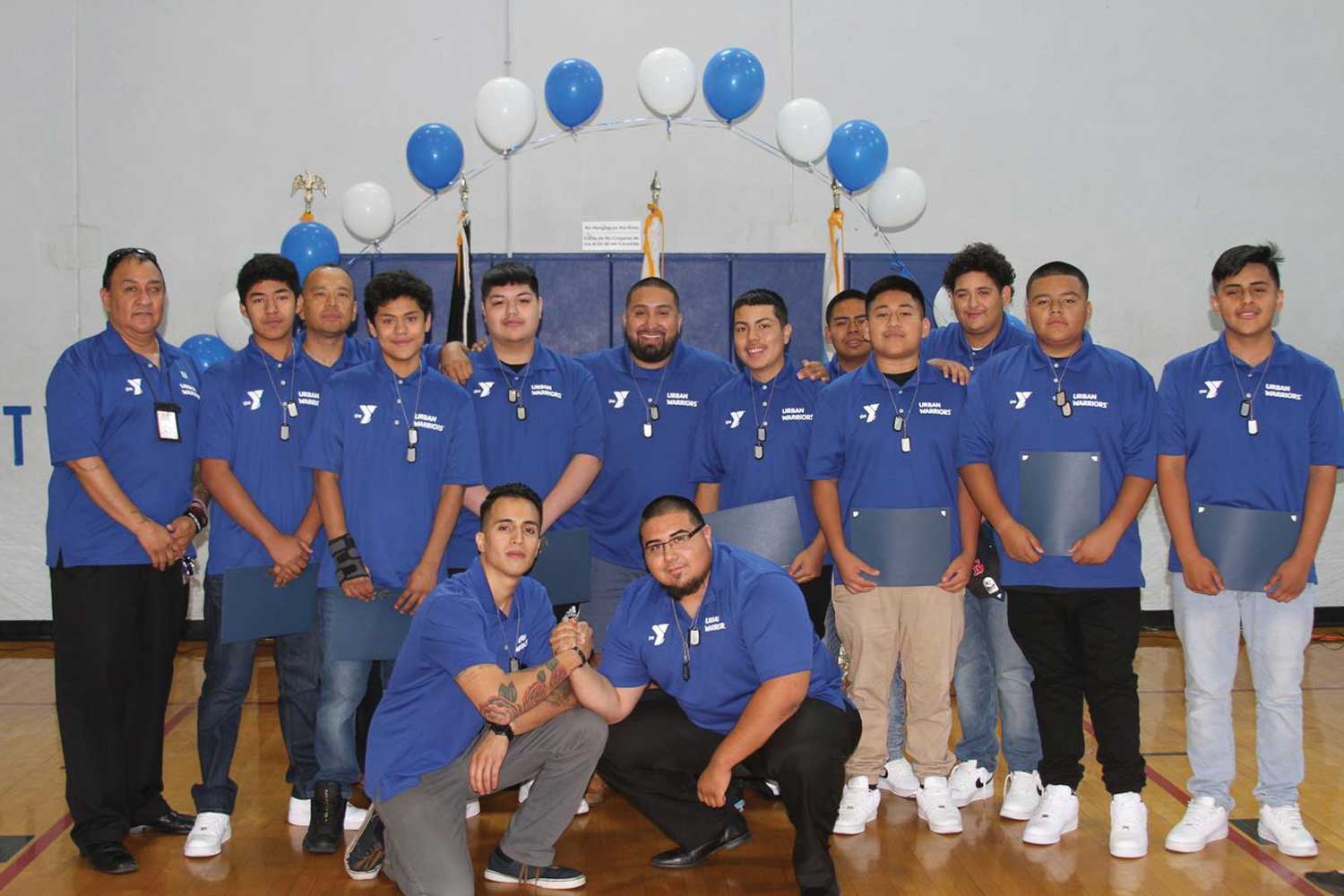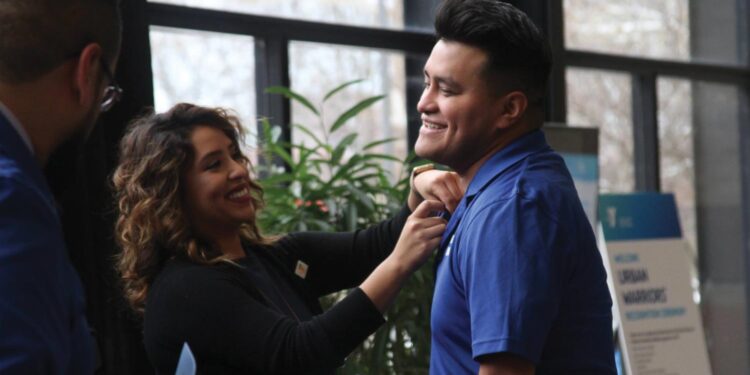How Urban Warriors, a peer support group, is bringing together recent military veterans and youth who are exposed to high levels of violence and trauma in some of Chicago’s most challenged neighborhoods.
Eddie Bocanegra, the former executive director of Youth Safety and Violence Prevention (YSVP) at the YMCA of Metropolitan Chicago, was having a conversation with his brother who had recently returned from a military tour. During their conversations, he noticed several similarities between his brother’s behavior, concerns and needs, and the YSVP youth he served.
This conversation sparked a survey issued to YSVP youth participants in the South Chicago and Little Village/Pilsen neighborhoods. It asked the question: Who do you respect? The choices were veterans, firefighters, teachers, police, doctors, lawyers, street gang affiliates, etc.
The overwhelming response was veterans.
This survey response created Urban Warriors, a dynamic peer support group that brings together recent military veterans and youth who are exposed to high levels of violence and trauma in some of Chicago’s most challenged neighborhoods.
Urban Warriors launched in the spring of 2014 as a pilot program in an area on the West Side of the city of Chicago that straddles two neighborhoods: Pilsen and Little Village. It brought together a group of 15 males, ages 13 to 19, and six male military veterans to serve as mentors.
“The program has continued to evolve over the years,” said Juanita Pye, the senior manager of the YSVP Initiative. “In the fall of 2016, we convened our first female cohort and also expanded our reach to more Chicago neighborhoods. Today, we proudly host two 16-week sessions a year, serving a total of 80 youth in four locations: Woodlawn, Humboldt Park, South Chicago, and Pilsen/Little Village. Both sessions are divided into two male and two female groups of 10 youth each that run concurrently.”
One session of the Urban Warriors program consists of weekly-meetings held every Saturday over a 16-week period. Each weekly meeting is attended by three veterans, up to 10 youth and one staff member.

“The meeting starts with a check-in and an icebreaker before diving into that week’s pre-determined topic,” said Pye. “Topics include team building, life stories, identity, stress reduction, grieving and loss, community building, and others. The two-hour circle time includes large and small group discussions, and at the end of each meeting, all participants share a meal together to provide additional time to connect organically, learn more about each other and reflect on the day’s activities.”
The Urban Warriors program is very beneficial to the youth participants.
Pye said the program is designed to instill pro-social skills in youth, such as learning to manage anger and talk about their emotions; how to positively address mental health issues by introducing and normalizing clinical therapy; and establishing a support system and developing coping strategies to resolve conflict.
“Before I joined the program, I didn’t know how to talk to people,” said Temarion Sidney, an Urban Warrior graduate. “It was just the way I was brought up. I was taught not to trust people. The program made me feel like I had a brotherhood. It taught me how to be aware of things, how to be consistent and never to give up on myself. And it made me feel important because people listened to what I had to say.”
In addition, the program benefits the veterans as much as it does the youth.
According to Pye, veterans report coming into the program with varying degrees of PTSD. Being part of Urban Warriors allows them to be linked to services, and connects them to a community and network that helps them to readjust to civilian life. The program provides them with an opportunity to model healing, vulnerability and teamwork.
Since the program started in 2014, Urban Warriors has served more than 400 youth and 150 veterans, and plans to impact the lives of many more.
“The very existence of the Urban Warriors program is acknowledgement that what these youth experience, feel and live with is very real,” said Pye. “It sends a very strong and clear message to youth they are seen and heard, and we recognize they need support to break the cycle of violence and regain control over their own futures.”










